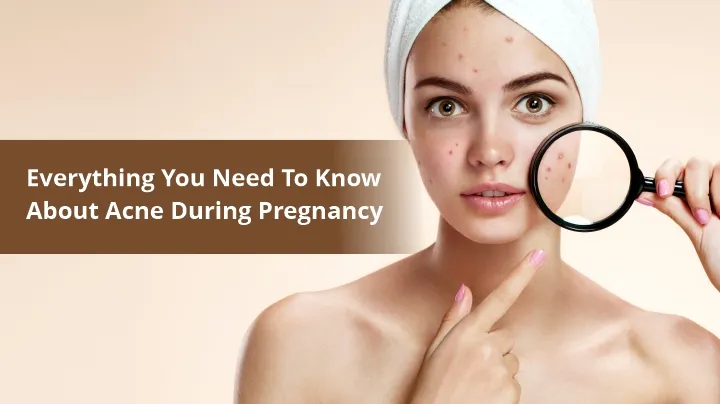
Acne or pimple is one of the common skin problems in pregnancy. Pregnancy is associated with bitter problems such as morning sickness, breathlessness and even acne breakouts in some women. Every woman, deserve to have clear skin and facial glow; but in some it is held back due to severe acne break outs.
It makes us sad is that you cannot take many modern acne treatments during pregnancy; as they are not safe and recommended. Overall, you are going to give birth to a new life and hence need an extra attention and be cautious.
Acne during pregnancy; it is just another acne and nothing different. As there is sudden shift in physiological changes during pregnancy; an increase in hormones called androgens can cause the glands in your skin to grow and produce an oily substance called sebum (more than normal). This oil or sebum combines with the dirt and the dead debris lined up in the hair follicles and blocks the pores and further creates an environment for the normal bacteria to multiply rapidly; eventually leadings to inflammations and skin eruption resulting in acne.
If you have a history of acne flares during menstruation; you are at high risk of getting acne break outs during pregnancy. If you do not develop acne during the first trimester, it’s unlikely you’ll have breakouts during the second or third trimesters.
The management of acne is mainly restricted to home-based treatments such as home remedies and home care skin products such as:
Use a gel based moisturizer to keep skin hydrated. Do not use a if your skin is oily or greasy.
